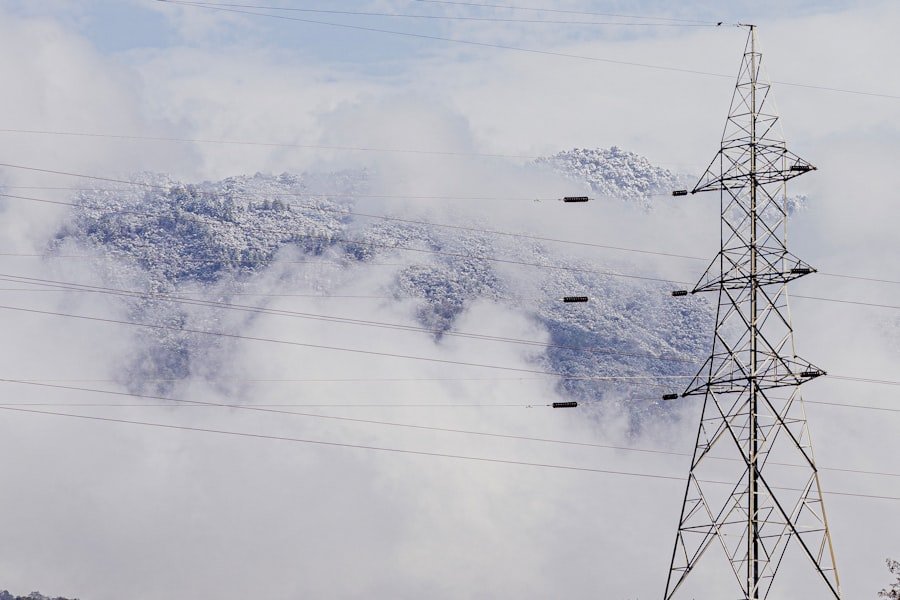Switzerland, known for its picturesque landscapes and efficient public transport, also has a unique electrical system that travelers and expatriates must navigate. Understanding the power plugs and sockets used in the country is essential for anyone planning to visit or move there. The Swiss electrical system is characterized by specific standards that differ from those in many other countries, which can lead to confusion for those unprepared.
This article delves into the intricacies of power plugs in Switzerland, providing a comprehensive guide to ensure that your electronic devices function seamlessly during your stay. The importance of familiarizing oneself with the local electrical standards cannot be overstated. In a world increasingly reliant on technology, having access to power is crucial for communication, navigation, and entertainment.
Whether you are a tourist needing to charge your smartphone or a resident using various appliances, understanding the nuances of Swiss power plugs will help you avoid inconveniences and potential damage to your devices. This guide will cover the types of plugs and sockets used, voltage and frequency specifications, safety tips, and more, ensuring you are well-equipped for your electrical needs in Switzerland.
Key Takeaways
- Switzerland uses type C and type J power plugs and sockets
- The voltage in Switzerland is 230V and the frequency is 50Hz
- Adapters are needed for type C plugs, while converters are needed for devices with different voltage requirements
- Safety tips include checking the voltage compatibility of devices and using surge protectors
- Power adapters can be purchased at electronics stores, airports, and online retailers in Switzerland
Types of Power Plugs and Sockets in Switzerland
In Switzerland, the most commonly used power plugs are Type C and Type J. Type C plugs, also known as Europlugs, feature two round pins and are widely used across Europe. They are designed to fit into various socket types, making them versatile for travelers from neighboring countries.
Type J plugs, on the other hand, are unique to Switzerland and Liechtenstein. They have three round pins arranged in a triangular configuration, with the top pin serving as a grounding pin. This design ensures a secure connection and is essential for devices that require grounding for safety.
The sockets in Switzerland are designed to accommodate both Type C and Type J plugs, allowing for compatibility with a range of devices. However, it is important to note that while Type C plugs can fit into Type J sockets, the reverse is not true. This means that travelers with devices equipped only with Type C plugs may need an adapter if they encounter a Type J socket.
Understanding these distinctions is crucial for anyone bringing electronics into Switzerland, as using the wrong type of plug can lead to malfunction or damage.
Voltage and Frequency in Switzerland

Switzerland operates on a standard voltage of 230 volts and a frequency of 50 hertz. This is consistent with many European countries but differs from regions such as North America, where the standard voltage is typically 120 volts at 60 hertz. For travelers and expatriates, this difference can have significant implications for the use of electrical devices.
Many modern electronics are designed to handle a range of voltages; however, older appliances or those not specifically marked as dual voltage may not function properly or could be damaged if plugged into a higher voltage outlet. When traveling to Switzerland, it is essential to check the voltage specifications of your devices before plugging them in. Most chargers for smartphones, laptops, and tablets are designed to accommodate a range of voltages (usually from 100V to 240V), making them suitable for international travel.
However, appliances such as hairdryers or electric shavers may require a voltage converter if they do not support 230 volts. Understanding these specifications will help prevent any mishaps that could arise from using incompatible devices.
Adapters and Converters for Power Plugs in Switzerland
| Product Name | Compatibility | Number of Outlets | Voltage Compatibility |
|---|---|---|---|
| Universal Travel Adapter | Switzerland | 1 | 110V – 240V |
| Swiss Power Plug Adapter | Switzerland | 1 | 220V |
| European to Swiss Adapter | Switzerland | 1 | 110V – 240V |
For those traveling to Switzerland with devices that do not match the local plug types or voltage requirements, adapters and converters become essential tools. A power adapter allows you to connect your device’s plug to the Swiss socket without altering the voltage. These adapters are relatively inexpensive and widely available in electronics stores or online retailers.
It is advisable to purchase a high-quality adapter that fits securely into the socket to ensure a stable connection. In contrast, a voltage converter is necessary when using devices that do not support the local voltage of 230 volts. These converters step down or step up the voltage to match your device’s requirements.
For example, if you have an appliance designed for 120 volts, a step-up converter would be needed to safely use it in Switzerland. It is crucial to check the wattage rating of your device against the converter’s capacity to avoid overheating or damaging either component. Understanding when to use an adapter versus a converter is key to safely using electronics in Switzerland.
Safety Tips for Using Power Plugs in Switzerland
Safety should always be a priority when dealing with electrical systems, especially in a foreign country. One of the primary safety tips is to ensure that all devices are compatible with Swiss voltage and plug types before use. Using an incompatible device can lead to overheating, electrical fires, or permanent damage to your electronics.
Always check the labels on your devices; many modern chargers indicate their voltage range clearly. Another important safety consideration is the condition of your power cords and plugs. Inspect them for any signs of wear or damage before plugging them into Swiss sockets.
Frayed wires or damaged plugs can pose serious risks of electric shock or fire hazards. Additionally, avoid overloading sockets by plugging in too many devices at once; this can lead to circuit overloads and potential electrical failures. Using surge protectors can also provide an extra layer of safety against power surges that may occur during storms or electrical fluctuations.
Where to Buy Power Adapters in Switzerland

Types of Adapters Available
These stores typically carry both Type C and Type J adapters, as well as universal adapters that can accommodate multiple plug types.
Online Shopping Options
In addition to physical stores, online shopping platforms like Amazon provide convenient options for purchasing power adapters before your trip. This can be particularly useful for those who want to ensure they have the right equipment upon arrival without having to search through local shops.
Planning Ahead Saves Time and Money
Planning ahead by purchasing adapters before your trip can save time and money. Airports often have kiosks selling travel essentials, including power adapters; however, prices may be higher than those found in regular retail outlets.
Using Electronics and Appliances in Switzerland
When using electronics and appliances in Switzerland, it is essential to be mindful of their compatibility with local standards. Many travelers find that their smartphones, laptops, and tablets work seamlessly due to their dual-voltage capabilities; however, appliances such as hairdryers or electric kettles may require special attention. If you plan on using high-wattage appliances, it is advisable to invest in a quality voltage converter that can handle the load without overheating.
Additionally, consider the availability of certain appliances in Switzerland. While most common electronics are readily available, some specialized devices may not be as easy to find or may come at a premium price due to import costs. If you rely heavily on specific appliances for daily tasks, it may be worth considering purchasing them locally once you arrive rather than bringing them from home.
Common Mistakes to Avoid with Power Plugs in Switzerland
Travelers often make several common mistakes when dealing with power plugs in Switzerland that can lead to frustration or damage to their devices. One frequent error is assuming that all European plugs will fit into Swiss sockets without issue; while Type C plugs may fit, Type J plugs are unique to Switzerland and require proper adapters for compatibility. Another mistake involves neglecting to check the voltage requirements of devices before use.
Many travelers mistakenly believe that all modern electronics can handle different voltages without issue; however, this is not always true for older appliances or those not designed for international use. Failing to use a voltage converter when necessary can result in irreversible damage.
Understanding the Swiss Electrical System
The Swiss electrical system operates under strict regulations designed to ensure safety and efficiency. The country’s grid is primarily powered by hydroelectric energy sources, which contribute significantly to its reputation for sustainability and environmental consciousness. The distribution system is well-maintained and reliable, providing consistent power supply across urban and rural areas alike.
In terms of infrastructure, Switzerland employs a three-phase system for its electricity distribution, which allows for efficient transmission over long distances while minimizing energy loss. This system supports both residential and commercial needs effectively. Understanding these aspects of the Swiss electrical system can provide valuable context for how power is delivered and managed throughout the country.
Traveling with Power Plugs in Switzerland
When traveling with electronic devices in Switzerland, preparation is key to ensuring a smooth experience. Before departure, research the specific plug types and voltage requirements for your devices and purchase any necessary adapters or converters ahead of time. Packing these items in an easily accessible part of your luggage will save time upon arrival.
Additionally, consider bringing along a multi-port USB charger if you have several devices that require charging; this can reduce clutter and make it easier to manage multiple devices simultaneously. Be mindful of where you charge your devices; public places such as cafes or airports may have limited access to power outlets or may require you to purchase something before using their facilities.
Conclusion and Summary of Power Plugs in Switzerland
Navigating the world of power plugs in Switzerland requires an understanding of local standards regarding plug types, voltage specifications, and safety practices. By familiarizing yourself with Type C and Type J plugs, ensuring compatibility with local voltage requirements, and utilizing appropriate adapters or converters when necessary, you can avoid common pitfalls associated with using electronics abroad. With careful planning and awareness of the Swiss electrical system, you can enjoy your time in this beautiful country without any interruptions due to electrical issues.
If you are traveling to Switzerland, it is important to know about the unique power plugs used in the country. The article “Exploring the Delightful World of Asian Melon” discusses the different types of power plugs and sockets you may encounter in Switzerland and provides helpful tips for using them safely. It is essential to be prepared and informed before your trip to ensure that you can easily charge your devices and stay connected while exploring this beautiful country.
FAQs
What type of power plugs are used in Switzerland?
In Switzerland, the standard power plugs and sockets are Type J. These plugs have three round pins in a row and are designed for a voltage of 230V and a frequency of 50Hz.
Can I use my electronic devices from other countries in Switzerland?
If your electronic devices have a different type of plug, you will need a plug adapter to use them in Switzerland. Additionally, if the voltage and frequency of your devices are not compatible with the Swiss standard (230V, 50Hz), you may also need a voltage converter.
Where can I buy a power plug adapter in Switzerland?
Power plug adapters can be purchased at most electronics stores, airports, and travel accessory shops in Switzerland. They are also available for purchase online and at some convenience stores.
Do hotels in Switzerland provide power plug adapters for guests?
Some hotels in Switzerland may provide power plug adapters for their guests, but it is not guaranteed. It is recommended to bring your own adapter to ensure you can use your electronic devices during your stay.
Are there any safety considerations when using power plugs in Switzerland?
It is important to ensure that your power plug adapter is compatible with the Swiss Type J sockets and that it is in good condition. Overloading sockets with multiple adapters or using damaged adapters can pose safety hazards. Always follow the manufacturer’s instructions and guidelines for using power plug adapters.

